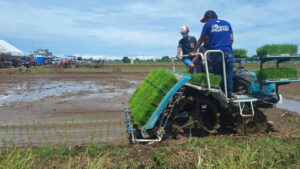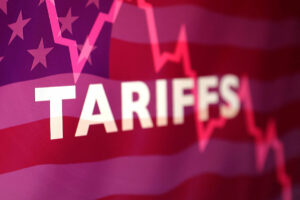Filipino voters are often underestimated. There’s a persistent stereotype that they’re easily swayed by charm or quick fixes. But recent surveys tell a more grounded story — one that points to a growing demand for real solutions to everyday challenges, especially when it comes to food and livelihood.
Recent surveys, however, reveal that the preferences of Filipino voters are more intimately linked to issues of the gut, not only for a single day’s meal but for the foreseeable future in their families’ lives.
A Pulse Asia survey conducted in February 2025 revealed that 53% of Filipinos believe that the government should focus on making basic commodities more affordable, while 51% seek expanded employment and livelihood programs to cope with the rising cost of living.
Regional and socioeconomic variations in the survey data further validate this. For instance, 63% of respondents in Mindanao and 59% of those from Class E prioritize access to affordable basic goods, highlighting the disproportionate impact on poorer and rural communities. Moreover, 74% of Filipinos have already reduced consumption of meat, and 35% have cut back on rice. Inflation is eroding dietary quality and nutritional intake.
Food inflation is therefore now a matter of survival. And when people cannot afford the prices of basic food items, food insecurity sets in. According to the Food and Agriculture Organization’s (FAO) 2024 report, 6.8 million Filipinos experienced severe food insecurity from 2021 to 2023, while 51 million were moderately food insecure during the same period. Food insecurity aggravates social inequality, poverty, malnutrition and public discontent.
Food insecurity does not develop overnight. Decades of inconsistent policies, poor infrastructure and failure in the proper implementation of programs have weakened the country’s local agricultural sector that greatly impacted our local food systems.
This is not something that we should wait years to respond to. Pulse Asia survey data from February 2025 reveal that 37% of Filipinos believe that the Department of Agriculture (DA) should prioritize bridging farmers to major distribution channels to eliminate costly middlemen. This reflects growing public recognition that weak market linkages are a core barrier to agricultural profitability and food affordability.
Notably, support for this measure is strongest in Mindanao (41%) and NCR (40%), areas that represent both key production and consumption centers. Meanwhile, 30% advocate for land consolidation to promote more efficient, corporate-style farming, and 26% support a review of subsidy and loan distribution — highlighting demand for systemic reform in agricultural financing. These preferences indicate a shift in public awareness toward structural and supply chain-focused solutions, emphasizing the need for an integrated approach that improves logistics, market access and productivity across the agricultural sector.
The threats of climate change and natural disasters further endanger our food supply chain and agricultural productivity.
The issue of food security takes on an even more urgent hue as we approach the May elections. A Social Weather Stations (SWS) survey in February 2025 highlights the urgency of this issue as 90% of voters support candidates who prioritize the development of the agriculture sector and ensure food security.
Agro-industry should be prioritized because it encourages resilience amid global supply chain disruptions, and promotes inclusive and sustainable economic growth. Self-sufficiency at all costs is not sustainable and inefficient. A modern food security strategy must focus on crop diversification, farm clustering and mechanization, and public-private partnerships in post-harvest facilities, logistics, storage and research and development.
Ensuring food security requires bold, systemic reforms beyond short-term subsidies. A forward-looking agricultural agenda must prioritize infrastructure, technology and data-driven policies to enhance productivity and resilience. This demands strong leadership committed to transforming the Department of Agriculture, shifting from a welfare mindset to a focus on efficiency and innovation.
As the May elections draw closer, the stakes are becoming clearer. These midterm elections are no longer about personalities or political affiliations. They are about real solutions to the rising cost of food and the long-term well-being of Filipino families. Voters are no longer swayed by vague promises; they are demanding clear, actionable and sustainable security agendas from the candidates who want to lead them.
Food is no longer just an economic or social issue; it’s a full-blown national concern. Inflation has pushed basic goods out of reach for many Filipinos, turning daily meals into a struggle. This can’t be treated as a token issue. Candidates must go beyond band-aid solutions and show how they’ll tackle food insecurity at its roots. Because food security isn’t just about today’s grocery bill; it’s about shaping a future where agriculture is strong, farmers are valued, and no family goes hungry. In this election, voters will decide whether the next leaders will confront this crisis head-on or let it keep getting worse. As voters, we have the power and responsibility to choose the right leaders who will have the integrity and capacity to lead us out of this food crisis.
Victor Andres “Dindo” C. Manhit is the president of the Stratbase ADR Institute.






